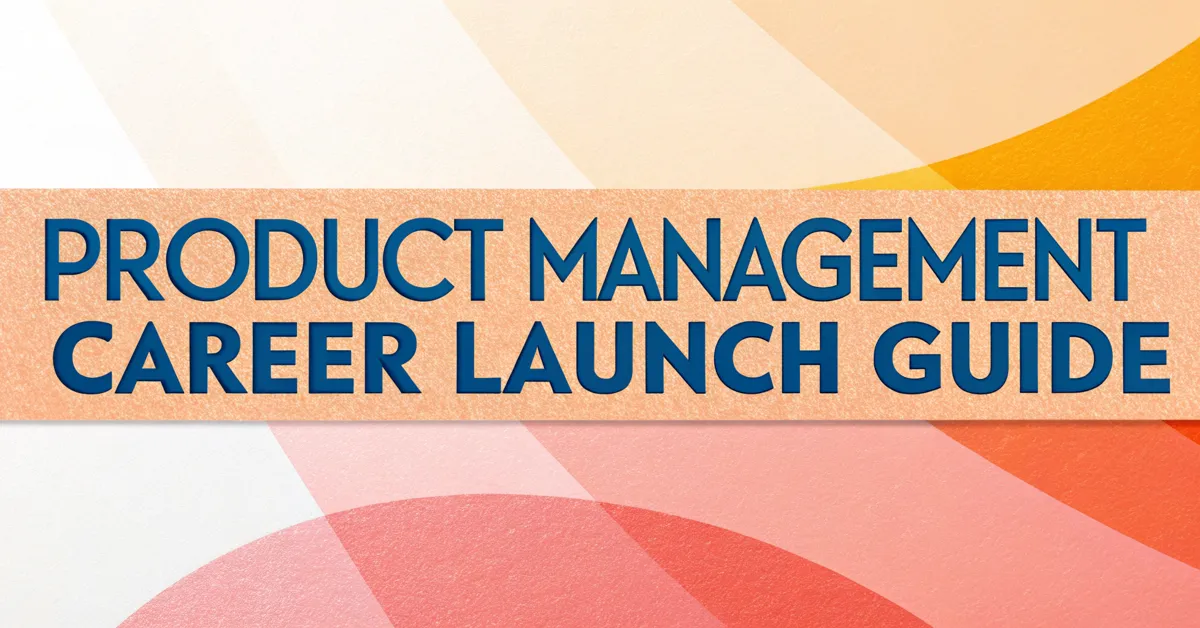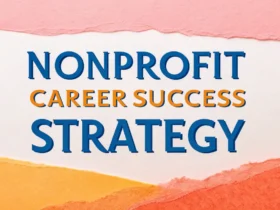Product management is a career that many business grads crave. It’s a spot where you can shape products, work with smart people, and see your ideas come to life. But landing that first product management role can feel like a puzzle. The path isn’t always clear, and competition can be fierce.
This guide is for you if you’re a recent business graduate eyeing a career in product management. We’ll break down the steps to take, skills to build, and strategies to use to kickstart your PM journey. From understanding the basics to acing the interview, this is your roadmap to launching a successful product management career.
What Does a Product Manager Actually Do?
Before diving in, let’s clear up what a product manager (PM) does. Forget the image of just bossing people around. A PM is the glue that holds a product together. They blend business smarts, tech know-how, and a deep understanding of what users want.
Here’s a taste of their daily grind:
- Talk to users: Understand their pain points and needs.
- Do market research: Spot trends and size up the competition.
- Define the product vision: Set the direction for what the product should be.
- Create a product roadmap: Plan the features and timeline for development.
- Work with engineering: Make sure the product gets built right.
- Team up with marketing: Get the word out about the product.
- Analyze data: Track performance and find areas to improve.
In short, the PM is the voice of the user, the strategist, and the champion of the product. They make sure everyone’s rowing in the same direction.
Is Product Management the Right Path for You?
PM roles are hot, but that does not mean it’s for everyone. Take a step back and think if it is the right career for you, to know that, you must be aware if you have what it takes, or if you are willing to learn it. Ask yourself if you:
- Enjoy solving problems and crafting solutions
- Like to lead and inspire teams
- Have an eye for detail but can also see the big picture
- Want to work where business, tech, and user experience meet
If you answered “yes” to most of these, product management might be your calling.
Essential Skills for Aspiring Product Managers
Okay, you’re ready to jump in. But what skills do you need? Here are some must-haves:
Hard Skills
- Data Analysis: Know how to read and interpret data. Tools like Excel, SQL, and Google Analytics are your friends.
- Market Research: Ability to analyze markets, size opportunities, and understand competitors.
- Technical Proficiency: You don’t need to code, but understanding tech concepts is crucial.
- Product Roadmap Creation: Knowing how to prioritize features and create a clear roadmap.
Soft Skills
- Communication: Clear, concise communication is key. You need to talk to engineers, designers, and execs.
- Leadership: Guide teams, make decisions, and keep everyone motivated.
- Empathy: Understand users’ needs and advocate for them.
- Problem-Solving: Tackle complex issues and find creative solutions.
- Prioritization: With so much to do, you must know how to focus on what matters most.
Getting Your Foot in the Door
So, how do you gain these skills and experience? Here’s a roadmap:
1. Beef Up Your Resume
- Highlight Relevant Coursework: Did you take classes in marketing, data analysis, or design thinking? Showcase them.
- Showcase Projects: Include any projects where you led a team, solved a problem, or made a decision with impact.
- Quantify Your Achievements: Instead of “Improved customer satisfaction,” say “Increased customer satisfaction by 15%.”
- Tailor Your Resume: Adjust your resume for each job application, emphasizing the skills and experiences that match the specific role.
2. Networking: Your Secret Weapon
- Attend Industry Events: Conferences, meetups, and workshops are great for meeting people and learning new things.
- Connect on LinkedIn: Reach out to PMs at companies you admire. Ask for informational interviews.
- Join Online Communities: Participate in online forums, Slack groups, and LinkedIn groups focused on product management.
- Build Relationships: Networking isn’t just about collecting contacts. It’s about building real connections with people in the field.
3. Level Up Your Education
- Online Courses: Platforms like Coursera, Udemy, and Product School offer courses specifically tailored for aspiring PMs.
- Certifications: Consider getting a product management certification to demonstrate your knowledge and skills.
- Bootcamps: Intensive bootcamps can provide a fast track to learning product management fundamentals.
- MBA Programs: While not always necessary, an MBA can give you a broader business perspective and open doors to certain companies.
4. Gain Experience: Even Without a PM Title
- Side Projects: Start your own project. Identify a problem, design a solution, and build it. This shows initiative and product management skills.
- Volunteer: Offer your skills to nonprofits or startups. This gives you real-world experience and expands your network.
- Internal Transfers: Look for product management-adjacent roles within your current company. Then, work your way toward a PM position.
- Freelance Work: Take on freelance projects related to product management. This allows you to build your portfolio and gain experience on your own terms.
Cracking the Product Management Interview
The interview is where you show that you have what it takes. Here’s how to ace it:
1. Understand the Common Questions
- Behavioral Questions: “Tell me about a time you failed. How did you handle it?”
- Product Sense Questions: “How would you improve [popular product]?”
- Technical Questions: “Explain the difference between agile and waterfall.”
- Estimation Questions: “How many smartphones are sold in the US each year?”
2. Use the STAR Method
- Situation: Describe the context and background.
- Task: Explain what you needed to achieve.
- Action: Detail the steps you took.
- Result: Highlight the outcomes and impact of your actions.
3. Practice, Practice, Practice
- Mock Interviews: Practice with friends, mentors, or career coaches.
- Case Studies: Work through product management case studies to improve your problem-solving skills.
- Whiteboarding: Practice whiteboarding exercises to demonstrate your ability to think on your feet.
- Record Yourself: Record yourself answering common interview questions to identify areas for improvement.
4. Know Your Stuff
- Research the Company: Understand their products, market position, and challenges.
- Understand the Role: Know what the specific job entails and how it aligns with your skills.
- Prepare Questions: Ask thoughtful questions about the company, the team, and the role to show your interest and engagement.
5. Show, Don’t Just Tell
- Share Your Process: Walk the interviewer through your thought process when solving problems.
- Provide Examples: Back up your claims with concrete examples from your experience.
- Be Enthusiastic: Demonstrate your passion for product management and your eagerness to learn and grow.
Common Mistakes to Avoid
- Not Knowing the Basics: Failing to understand core product management principles.
- Lack of Preparation: Not researching the company or practicing common interview questions.
- Being Too Vague: Not providing specific examples or quantifying your achievements.
- Poor Communication: Struggling to articulate your thoughts clearly and concisely.
- Not Asking Questions: Failing to ask thoughtful questions to show your interest and engagement.
- Skipping the Research: You must always look for and learn more from reliable sources.
- Forgetting E-E-A-T: Experience, Expertise, Authoritativeness, and Trustworthiness.
Resources to Help You Along the Way
- Books: “The Lean Product Playbook” by Dan Olsen, “Inspired” by Marty Cagan
- Blogs: “Product Talk,” “Mind the Product”
- Podcasts: “The Product Podcast,” “This is Product Management”
- Tools: Jira, Asana, Trello (for project management), Google Analytics (for data analysis)
- Communities: Product School, Women in Product, Reddit’s r/ProductManagement
The Product Management Job Titles
Navigating job titles in the field can be confusing. Here’s a breakdown:
- Associate Product Manager (APM): Entry-level role, often part of a structured program.
- Product Manager: Mid-level role, responsible for a specific product or feature.
- Senior Product Manager: More experienced, leads larger projects and mentors junior PMs.
- Product Lead/Group Product Manager: Oversees multiple products or teams.
- Director of Product: High-level role, sets the strategic direction for the product organization.
- VP of Product/Chief Product Officer (CPO): Executive-level role, responsible for the overall product vision and strategy.
Your goal as a new grad will likely be an APM or entry-level Product Manager position.
Salary Expectations
Entry-level product management salaries can vary based on location, company size, and industry. But you can expect to earn somewhere between $70,000 and $120,000 per year in the United States. With experience, your salary can increase significantly.
Always research salary ranges for specific roles and locations to ensure you’re negotiating a fair offer.
The Future of Product Management
Product management is constantly evolving. Here’s what to expect:
- Increased Focus on Data: Data-driven decision-making will become even more critical.
- AI and Machine Learning: PMs will need to understand how to leverage AI to improve products.
- Remote Work: Remote product management roles will become more common.
- Emphasis on User Experience: Creating seamless and intuitive user experiences will remain a top priority.
- Growth and Diversity: The field will grow to meet the need of more and more markets across different types of products and services.
Should You Get the Product Management Position?
You’ve prepped your resume, networked like crazy, aced the interview, and finally landed a product management offer. Congrats! But before you sign on the dotted line, take a moment to consider if it’s the right move for you.
Think about the company culture. Do you feel like you’d fit in with the team? Are you excited about the product you’d be working on? Does the company offer opportunities for growth and development?
If the answer is yes, then go for it. A career in product management can be incredibly rewarding. It’s a chance to shape the future, solve problems, and make a real impact on the world. So take the leap and start your product management journey today.















Leave a Reply
View Comments